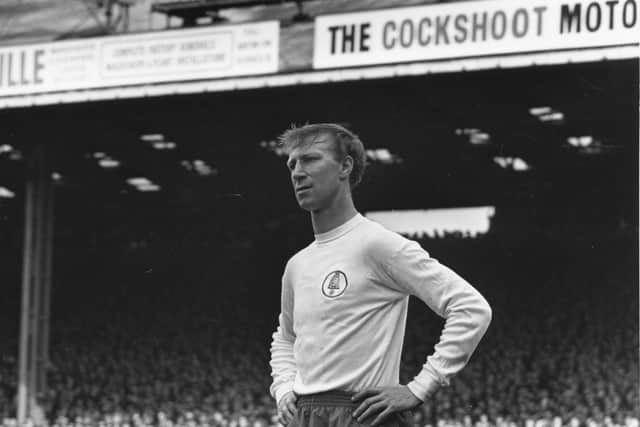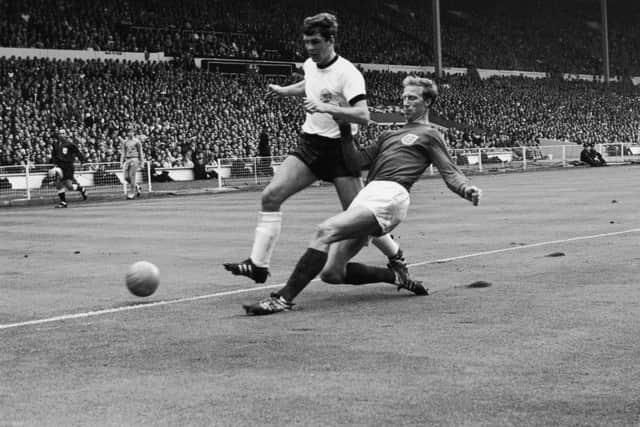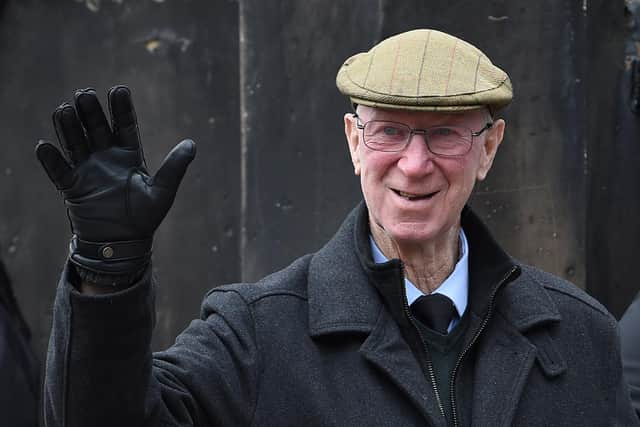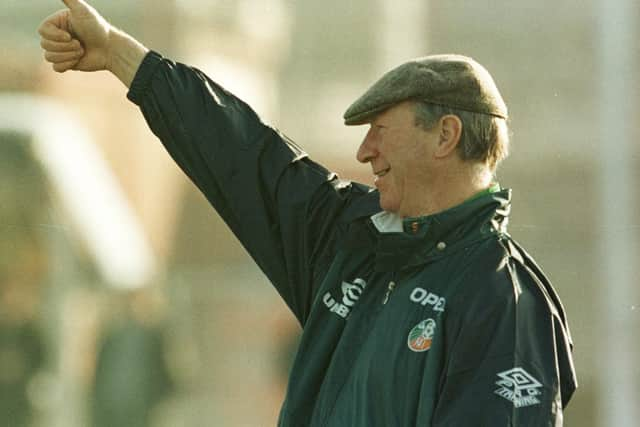Jack Charlton: the Leeds United legend often underestimated but always appreciated in Yorkshire
“Bobby could play and I couldn't,” Jack used to say, but understanding his limitations and humorous self-deprecation made him popular and successful long after he retired from playing in 1973.
In keeping with his Leeds United team, he did not try to make friends, just worked ferociously hard and intelligently, and adoration naturally followed. The reaction to his passing on Friday at the age of 85 showed that.
Advertisement
Hide AdAdvertisement
Hide AdCharlton was an everyman in Leeds and England's greatest sides, an ex-miner who did national service with the Household Cavalry, who liked a pint, a smoke and the outdoors, a grafter and a hard man without airs or graces.


Yet when the competitiveness and bluntness which counted against him with the Football Association combined with natural warmth and generosity they produced skills which were anything but ordinary as a player, manager, television pundit and public speaker.
His quirks, like his difficulty remembering names, only endeared him more.
For the 90 minutes of a match it must have been impossible not to hate playing against Charlton and at times his inquisitiveness made him hard to manage, but in almost all other circumstances, it was impossible not to like him.
Advertisement
Hide AdAdvertisement
Hide AdCharlton is Leeds's record appearance-maker and despite spending most of his career at centre-half, ninth highest goalscorer. He was a league champion, two-time Fairs Cup winner, FA Cup, League Cup and 1966 World Cup winner.


Whereas graceful Bobby was guaranteed to be a professional footballer, gangly Jack was not.
Aged 15 he turned down trials at Leeds and Newcastle United to work in the pits, but quickly took up the Elland Road offer.
Given the unenviable task of filling in for John Charles on his 1953 Division Two debut, two years of national service held him back, as did enjoying life off the field. What changed was working with Don Revie and his coaches, who took over in 1961.
Advertisement
Hide AdAdvertisement
Hide Ad“Suddenly I found out people would listen to you,” he said, but when Revie told him he could play for England, Charlton replied: "Don't be stupid."


Revie initially used Charlton at centre-forward and decided to let him go in 1962. When Liverpool's Bill Shankly and Manchester United's Matt Busby failed to meet the asking price, he knuckled down into a one-club centre-back. Pairing him with Norman Hunter that year was the making of one of the great English club sides.
The uncompromising Charlton's mythical “little black book” had legendary status.
“If someone did something really nasty to you, I'd get them back if I got the chance but I would do it within the laws of the game,” he later explained.
Advertisement
Hide AdAdvertisement
Hide AdShankly, Busby and Revie were not the only managerial greats to recognise his talents. Shortly before his 30th birthday in 1965, Alf Ramsey handed him the first of 35 England caps, balancing his physical qualities with Bobby Moore's elegant ones.


In 1966 he achieved footballing immortality but unlike many legends, transferred his talents – determination to the point of bloody-mindedness, intelligence and pragmatism – to the dugout.
He began studying for his coaching badges aged 22, and managing on his 38th birthday.
In 1974 Charlton became the first manager of the year from outside of the top division as Middlesbrough won promotion to Division One with seven games of his debut season remaining.
Advertisement
Hide AdAdvertisement
Hide AdWorried he would outlast his sell-by date, he left in 1977 and applied to be England manager but did not get a reply. The FA would pay for that.
Sheffield Wednesday were bottom of Division Three when he took over in October 1977, but he led them to promotion in 1980. They would have won another in 1982 had three points for a win not been introduced that season. He left after taking them to the 1983 FA Cup semi-finals.
He become Republic of Ireland manager in 1985 and a rag-tag, direct side, often derided as an England B team because of the number of players born there, regularly embarrassed the Three Lions, beating them at Euro 88, drawing with them at Italia 90, and reaching the last 16 at the 1994 World Cup, which England did not qualify for.
He resigned after failing to qualify for a fifth successive major tournament in 1995, a career of constant under-estimation ended by unrealistic expectations he raised.
Comment Guidelines
National World encourages reader discussion on our stories. User feedback, insights and back-and-forth exchanges add a rich layer of context to reporting. Please review our Community Guidelines before commenting.